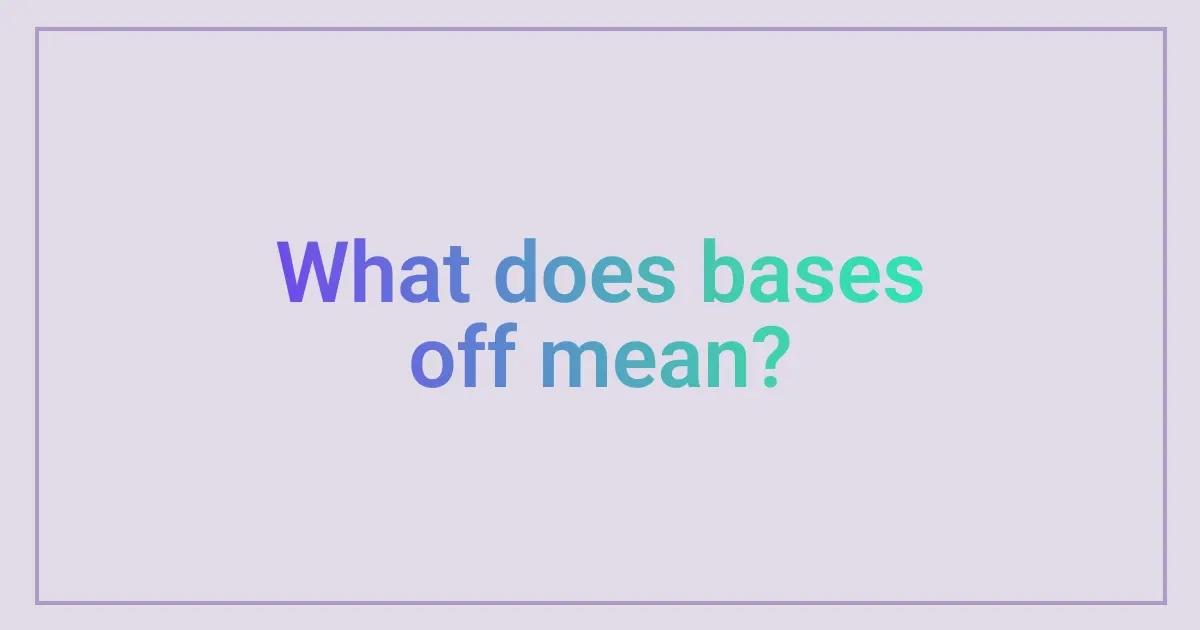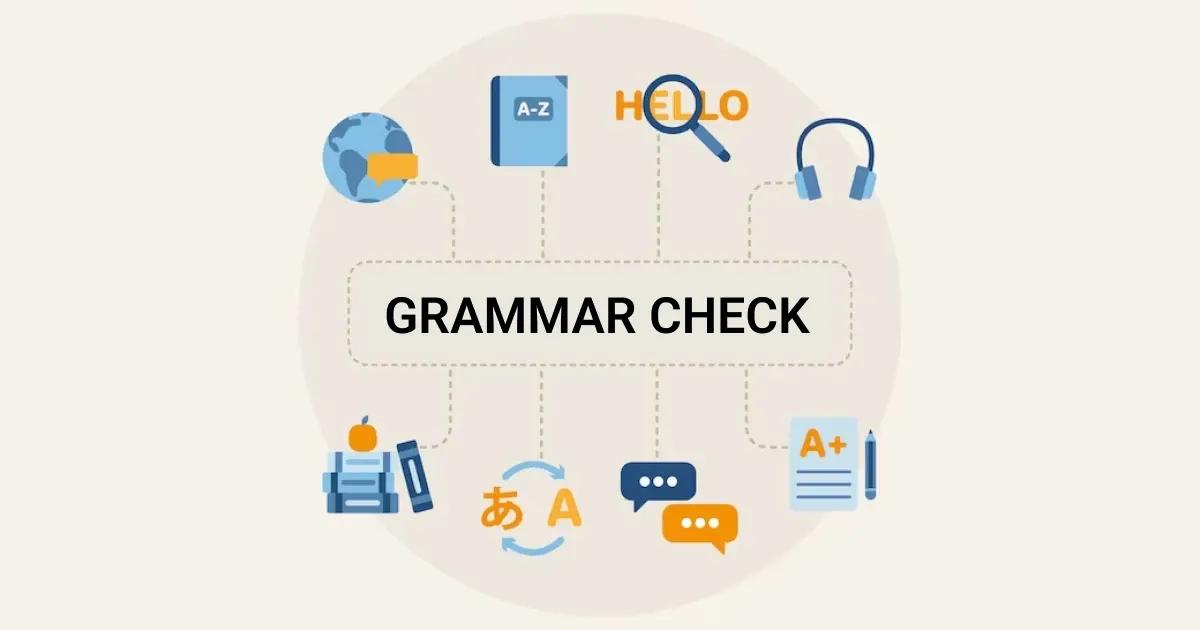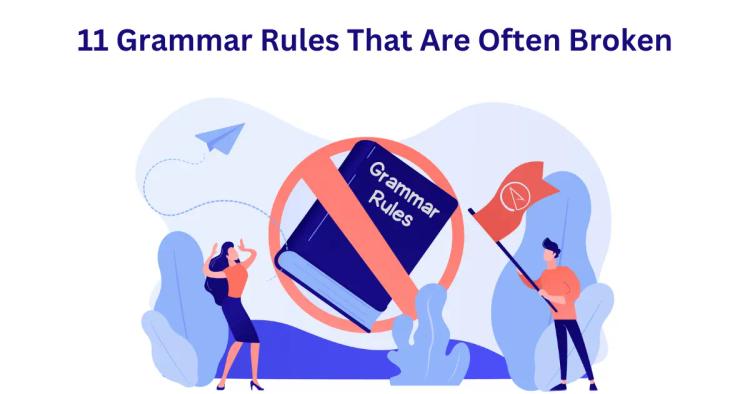Ever watched a movie and wondered, "Is it based on a true story or based off of one?" It's a common question, and you've likely heard both phrases thrown around, maybe even interchangeably. So, which one is it—based on or based off? Well, here's the scoop: when it comes to writing, "based on" takes the crown.
However, in casual chats or laid-back talks, you might hear "based off of" making a cameo. In this little journey through words, we're going to unravel why writers usually prefer "based on," sprinkle in a bit of why people might opt for "based off of" in a chat and toss in some examples to make it all crystal clear.

Let's get ready to decode the language mystery!
ᴀᴅᴠᴇʀᴛɪsᴇᴍᴇɴᴛ
What is the difference between "based on" and "based off"?
Okay, let's break it down like we're solving a puzzle together. Picture "based on" as a dependable friend. When you say something is "based on" another thing, it means it's rooted in that thing, like a tree firmly planted in the ground. Imagine you're telling a story about a real event, and your story sticks closely to the facts—that's when you'd say it's "based on" true events.
Now, "based off" is like the same friend, but with a touch of imagination. It's saying, "Yes, I got inspiration from this, but I also added my own creative flair." So, if you're writing a script inspired by true events but taking some liberties for drama or creativity, that's when you'd say it's "based off" those events.
In simpler terms, "based on" is like following a recipe to the letter, while "based off" is adding your secret ingredient to make it uniquely yours. Two buddies, similar in nature but with their own distinct personalities. That's the magic of language—it gives us these subtle tools to paint vivid pictures with our words.
What is the meaning of "based on"?

Building on a Solid Foundation:
When we say something is "based on," we're talking about using a strong foundation or source. It's like constructing a house on a sturdy frame. In writing, this means your ideas or stories are rooted in a specific source or concept, forming a reliable starting point for further development. As you continue developing your writing, especially when it comes to essays, consistent practice and constructive feedback become essential — and a service like essay review expert can help you build a clearer structure and stronger arguments.
Faithful Adherence to Originals:
"Based on" implies a commitment to sticking close to the original. Imagine a movie "based on a true story" – it means the film follows real events with a high degree of accuracy, like a storyteller staying true to the details of a historical account.
Dependence on a Source:
Think of "based on" as a reliance on something concrete. It's like relying on a map to navigate; your work relies on the details of the source, ensuring that the essence of what came before is preserved in your creation.
What is the meaning of "based off of"?

Interpreting and Modifying:
"Based off of" maintains a connection to the original source but introduces a hint of interpretation or modification. It's akin to a painter using a real scene as inspiration but adding their own creative twists. This phrase suggests a departure from strict adherence, allowing for some flexibility and creativity.
Artistic License and Creative Freedom:
The addition of "of" gives a nod to a level of creative freedom. It's like a storyteller taking real events and weaving them into a fictional narrative. Here, the creator has the license to mold the material, adding their artistic touch while still acknowledging the source.
Flexibility in Interpretation:
"Based off of" invites interpretation. It's a bit like cooking with a recipe but adding your unique flavors. The core ingredients are there, but you have the freedom to adjust, modify, and interpret based on your creative vision.
ᴀᴅᴠᴇʀᴛɪsᴇᴍᴇɴᴛ
What is the meaning of "based off"?
Distilling to Essence:
In its shortest form, "based off" concentrates on the idea even further. It's like watering down a complex concept to its essence. This introduces a level of ambiguity, leaving room for interpretation. It's the shorthand version, relying on the audience to fill in some of the blanks.
Open to Interpretation:
"Based off" suggests a departure from a strict, detailed connection to the original. It's more open to interpretation and modification, like an artist providing a broad stroke that allows the audience to contribute to the details. It's concise, leaving some aspects to the imagination.
Ambiguity and Creativity:
Based off can introduce ambiguity, but it also sparks creativity. It's like a puzzle piece that fits into the larger picture but leaves room for individual interpretation. This phrase is a prompt for the audience to engage actively in the creative process. These distinctions in meaning provide a nuanced understanding of how these phrases operate in different contexts, offering writers the tools to convey their ideas with precision and clarity.
Based on and Based Off of Examples
Let's take a closer look at how "based on" and "based off of" play out in real-life examples. These scenarios will illuminate the subtle differences, helping us understand when to use each phrase with precision.
Example 1: Historical Narratives
"Based on": Imagine a historical documentary based on the life of a renowned figure. In this case, the filmmakers meticulously stick to the historical facts, presenting an accurate portrayal of events.
"Based off of": Now, picture a historical drama based off of the same person's life. Here, the creative team might take some liberties for dramatic effect, weaving a narrative that captures the essence while introducing fictional elements.
Example 2: Scientific Discoveries
"Based on": Consider a research paper based on a groundbreaking scientific study. The author relies on the study's findings, presenting the information accurately and precisely.
"Based off of": On the other hand, think about a science fiction novel based off of a scientific theory. Here, the author uses the theory as a launching pad for a creative exploration, introducing imaginative elements inspired by the scientific concept.
Example 3: Personal Experiences
"Based on": Picture a memoir based on the author's own experiences. In this case, the writer aims to convey a truthful and accurate account of their life events.
"Based off of": Now, imagine a fictional novel based off of the author's personal experiences. Here, the writer draws inspiration from their life but allows for creative embellishments, crafting a story that might deviate from the exact details.
These examples highlight that "based on" tends to stick closely to the original source, emphasizing accuracy, while "based off of" introduces a creative twist, allowing for a degree of interpretation and artistic expression. Understanding these distinctions empowers writers to choose the phrase that best aligns with their intended message.
ᴀᴅᴠᴇʀᴛɪsᴇᴍᴇɴᴛ
Copychecker's Grammar Checker Tool

In the realm of language precision, Copychecker emerges as a steadfast ally. This grammar checker goes beyond mere spell-checking, employing sophisticated algorithms to analyze context and offer nuanced suggestions. Its role extends beyond correction to elevate the overall quality of your writing.
Copychecker's arsenal includes grammar checks, style suggestions, and context analysis. Its ability to understand the intricacies of phrases like "based on" and "based off" ensures your writing maintains coherence, providing real-time feedback to refine your expression.
How Copychecker Helps with "Based Off" vs. "Based On"
Specifically tailored to address common language pitfalls, Copychecker serves as a vigilant guardian against the misuse of "based on" and "based off." Its context-sensitive suggestions guide writers toward the most fitting choice, reinforcing clarity and precision in expression.
Proper Usage in Writing
Formal vs. Informal Contexts
In the realm of language, choosing the right phrase is like picking the perfect outfit for an occasion. Let's break down how to use "based on" and "based off" in different writing settings.
Formal Contexts
Imagine you're writing a report for your boss, a research paper for school, or even a legal document. In these formal scenarios, precision is crucial. Here's why "based on" is your go-to choice:
-
Precision Matters: Formal writing demands clarity, leaving no room for misinterpretation. "Based on" signals a direct connection to a specific source or foundation, providing a clear and reliable link.
-
Professional Tone: Using "based on" in formal contexts maintains a professional tone. It's like wearing a suit to a business meeting it shows respect for the seriousness of the situation.
-
Avoids Ambiguity: In formal writing, you want your message to be crystal clear. "Based on" eliminates any ambiguity, ensuring that your audience understands the solid foundation upon which your statements rest.
Informal Contexts
Now, picture yourself crafting an email to a friend, sharing a story on social media, or even jotting down your thoughts in a casual blog post. Here, the vibe is more relaxed, and you might opt for the shorter, snappier "based off."
-
Casual Vibes: Informal writing is like hanging out with friends. It's okay to be a bit more laid back. "Based off" brings in a touch of creativity and flexibility, giving your language a more relaxed feel.
-
Expressive Freedom: Informal contexts often welcome a bit of personal flair. "Based off" suggests that you're taking a concept or idea and putting your spin on it. It's like adding your favorite toppings to a pizza – you're making it uniquely yours.
-
Less Rigidity: Unlike the strict formality of "based on," "based off" allows for a bit of play. It's the difference between a structured meeting and a casual chat over coffee – both have their place, and so do these phrases.
Writing Style Guidelines
Now, let's talk about the overall style of your writing. Just like each author has a unique signature, your writing style is your literary fingerprint. Here's how to incorporate "based on" and "based off" seamlessly into your writing style.
-
Consistency is Key: Imagine reading a novel where the author keeps switching between "based on" and "based off." It would be like listening to a song with an out-of-tune instrument. Maintain a consistent tone throughout your piece for a smoother reading experience.
-
Know Your Audience: Consider who will be reading your work. If it's a formal report for your professor, stick with the tried-and-true "based on." If you're addressing a more casual audience, like a blog readership, you have the flexibility to sprinkle in some "based off."
-
Purposeful Choices: Every word you choose should serve a purpose. Whether you opt for "based on" for its clarity or "based off" for its creative flair, make your choice purposeful. It's like selecting the right spice for a dish – it enhances the flavor of your writing.
Avoiding Common Mistakes
Mistakes in writing can be like typos in a resume – they stand out. Let's pinpoint common errors and ensure your use of "based on" and "based off" is flawless.
-
Double-Check Your Tone: Picture your audience as you write. If it's a formal setting, ensure that the tone aligns with the seriousness of the occasion. In more casual scenarios, be sure not to come off as overly formal or rigid.
-
Context is Key: Sometimes, it's not just about the words themselves but how they fit into the bigger picture. Understand the context of your writing and choose accordingly. It's like picking the right tool for the job – each has its purpose.
-
Read Aloud: Give your writing a test run by reading it aloud. This can help you catch any awkward phrasing or unintended formality. It's like trying out dance moves in front of a mirror – you want everything to flow seamlessly.
Remember, the goal is not just to use the "right" phrase but to effectively communicate your message. It's like finding the perfect melody for your song – it should resonate with your audience and leave a lasting impression.
FAQs
What's the difference between based on and off?
The key difference lies in the degree of adherence. "Based on" suggests a closer tie to the original source, while "based off" allows for more creative interpretation or deviation from the source.
Why do Americans say based off instead of based on?
Language is a dynamic entity, and regional variations occur. "Based off" has become colloquial in American English, reflecting the natural evolution of language over time.
What does based off and based on mean?
Both phrases imply derivation from a source, but "based on" signals a closer connection to the original, while "based off" allows for more creative reinterpretation.
What is the meaning of based off?
"Based off" conveys the idea of deriving or building upon a source, allowing for creative interpretation or modification of the original concept.
ᴀᴅᴠᴇʀᴛɪsᴇᴍᴇɴᴛ
Conclusion
In the intricate dance of language, the nuances between "based on" and "based off" add depth to your expression. Armed with insights, supported by tools like Copychecker, and aware of potential pitfalls, you're poised to communicate with clarity and confidence.
As you embark on the ongoing adventure of writing, remember that language's true beauty lies not just in words but in the precise orchestration of ideas.






